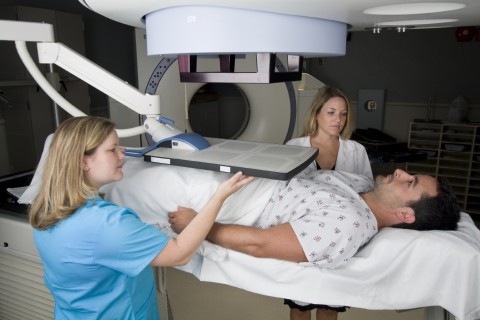The Consequences of Medical Mistranslations
Saturday, April 13th, 2019
Title VI of the Civil Rights Act of 1964, prohibits discrimination on the basis of race, color, and national origin in programs and activities receiving federal financial assistance.
Section 1557 of the Patient Protection and Affordable Care Act prohibits discrimination on the basis of race, color, national origin, sex, age, or disability in health programs or activities that receive Federal financial assistance.
In 1974, in the case of Lau v. Nicols, the Supreme Court ruled that language can be used as a proxy for national origin.
While these laws are in place, there is still mistranslation within healthcare facilities to this day. The consequences are severe, and in some cases, lethal.

Cases
Willie Ramirez
One of the most famous cases of medical mistranslation is the case of Willie Ramirez.Ramirez, an 18-year-old athlete, was hanging out with a friend when he started complaining of a splitting headache. He began to lose consciousness and was rushed to the hospital.At the hospital, Ramirez’ mother told doctors that he was ‘intoxicado,” a Cuban word meaning, not feeling well due to something one ate or drank. However, doctors misinterpreted this as “intoxicated,” so they treated Ramirez for a drug overdose. It wasn’t until a few days after he was hospitalized that doctors noticed Ramirez actually had a brain bleed.
The brain bleed, which could have been treated very quickly, instead was neglected for days. As a result, Ramirez became a quadriplegic, and the hospital became liable for $71 million.
Francisco Torres
Francisco Torres was scheduled for kidney surgery. For weeks leading up to the surgery, all medical records referred to the Torres’ left kidney. At some point there was a change in documentation, and the records began to reflect that it was the right kidney that needed attention. The documents were never translated from English to Spanish, so Torres did not see the mistake.
While in surgery, doctors removed the right kidney. When they realized their mistake, the doctors removed the left kidney as well.
As a result, Francisco will spend his life on dialysis. The Health Department cited the hospital “for errors leading up to the surgery, including failing to follow safety protocol and failing to communicate accurately with the Spanish-speaking patient.”
Teresa Tarry
Shortly before Teresa Tarry moved to Spain from the Britain, she discovered a small lump in her breast. She visited her doctor in the UK, who told her she had nothing to worry about.
But after a few months in Spain, the tumor grew to the size of a golf ball. Tarry visited a Spanish hospital, where she claims her medical records were mistranslated. Tarry says that the Spanish doctors believed her mother and sister had suffered from breast cancer, when in fact she has no family history of cancer.
While she had a challenging time explaining her situation to the Spanish doctors, Tarry eventually trusted their diagnosis and underwent a double mastectomy. Weeks later she discovered that the tumor was benign.
Tarry sued the hospital for €600,000 in compensation.
The Tran Family
The Tran’s 9-year-old daughter had a severe infection with a rapid onset. When they brought her in, the girl’s Vietnamese parents were unable to properly communicate with the doctors. So the young girl was asked to interpret for herself. When the girl lost consciousness, her 16-year-old brother took over interpreting.
The girl was treated for gastroenteritis. However, she was actually suffering from a reaction to the drug Reglan. The lack of proper treatment resulted in an extreme blood level drop.
The 9-year-old girl suffered a heart attack and died. The patient’s family sued the hospital and was given a mere $200,000 for their loss.
An expert witness at the hearing testified, “In my opinion, the failure of the doctor and the facility to provide a professional medical interpreter was a substantial factor in causing [the patient]’s death. The reasons for not using family members, friends, and particularly minor children as interpreters are widely recognized.”

Machine Translations
This day in age, if we need a simple word translated, we can just ask Google. However, when it comes to healthcare, machine translations are not an option. The risk of error is too great.
For example, if you ask Google to translate, “me siento intoxicado” it will tell you the translation is: “I feel intoxicated.” For the case of Willie Ramirez, he would have ended up in the exact same situation with Google translate.
Needless to say, a computer cannot be trusted in the realm of human healthcare translations. It takes a human to understand a human. The best case scenario is to use a professional human translator.

The Consequences of Ad Hoc Interpreters
An ad hoc interpreter is someone who facilitates doctor/patient communication in lieu of a professional interpreter, usually a bilingual staff member or a member of the patient’s family. Many studies have evaluated the effect of ad hoc interpreters on the results of medical cases, and all results point to the same answer.
Let’s take a look at the most detailed study to give you the clearest understanding.
In 2012, the Annals of Emergency Medicine published a study that evaluated audiotaped medical encounters to measure the potential consequences of cases where limited English proficient patients were provided professional vs. ad hoc vs. no interpreters.
Out of 57 encounters, 20 received professional interpreting, 27 were provided ad hoc interpreters, and 10 cases had no interpreter at all.
In total, 1,884 interpreter errors were noted, 18% of which had potential clinical consequence.
The risk of potential consequence broke down among each group like this:
- Ad Hoc Interpreters - 22% risk of error
- No Interpreter - 20% risk of error
- Professional Interpreters - 12% risk of error
The study found that in regards to professional interpreters, those with 100+ hours of interpreter training significantly reduced the proportions of errors of potential consequence, from 12% to 2%, in every error category.
This study, along with many like it, concludes that less errors occur when no interpreter is provided vs. an ad hoc interpreter stepping in. However, ultimately the best scenario is to have a professional interpreter, with extensive training in the field, facilitate communication between a doctor and patient.

Know Your Rights
If you, or someone you know is dealing with a medical issue and cannot accurately communicate with the doctor, request a professional medical interpreter. It is the responsibility of the hospital to provide a professional, certified interpreter to assure that the patient’s needs are met.
If you are put in a position where you’ve been asked to serve as the interpreter, reflect on your abilities, and remember you have the right to decline.
Keep in mind, if you step in as a medical interpreter, your interpretations will become legally binding. Any interpretation conducted for a patient is added to the patient’s medical records, which is a legal document, and will be presented in a court of law, should something unfortunate happen. If you are not sure how your interpretations will hold up in court, ask yourself these questions:
- Do I understand the medical terminology being used, and do I know how to translate it in both languages?
- Do I understand humor and sarcasm in both languages?
- Can I accurately interpret non verbal communication in both languages?
- Do I have a relationship with the patient that could make my interpretations biased?
If you decline to serve as an ad hoc interpreter, this is not a failure to your family or civic duty. In fact, ad hoc interpreting often causes more hard than good. You declining to serve as an intermediate interpreter might actually give the patient a greater chance at receiving proper medical care.

To Err or Not to Err
In conclusion, professional interpreters create an environment for the best standard of care. When you, or anyone you know, are presented with difficult communication in a medical encounter, ask for a professional.
To err is human. But in this case, the best way to secure the least amount of errors is to trust a professional. You trust a medical expert for your critical health needs. Trust a language expert for your critical communication needs.
Author Bio:
Ciara Boyce is a content writer at Day Translations, Inc.. Ciara has a passion for uniting cultures across the world. She loves to encourage people through both the spoken and written word, and starts every morning motivating others with daily affirmations via @inrawlife on Instagram.
Related Course
Communicate with Spanish speaking patients with MedSpanishPod101!
Learn essential conversations, phrases, vocabulary, and earn 50 AMA PRA Category 1 Credit(s)™
With MedSpanishPod101, you learn Spanish with 3-15 minute Audio/Video Lessons by real teachers. You’ll learn the must-know phrases and questions to use with patients. Plus, you’ll learn a ton of medical vocab along the way. By the end, you’re ready to speak and use the phrases with patients.
